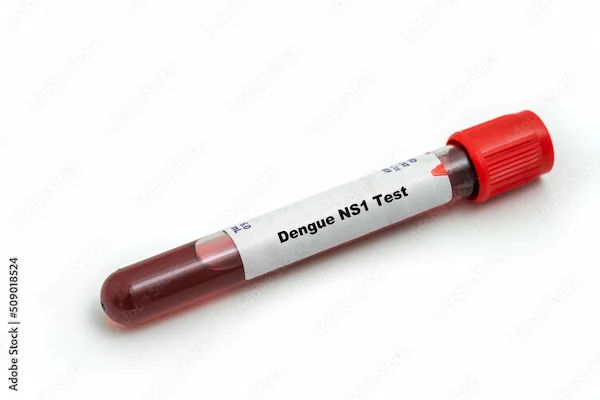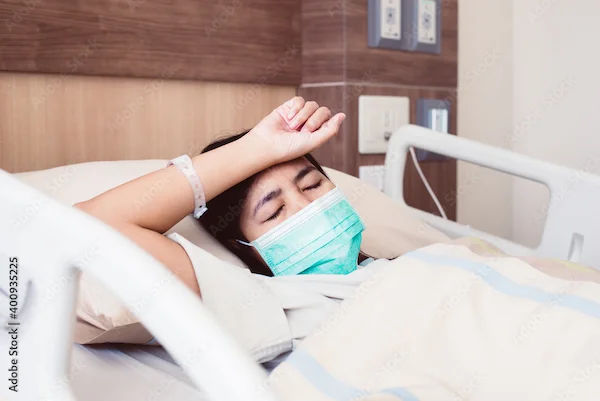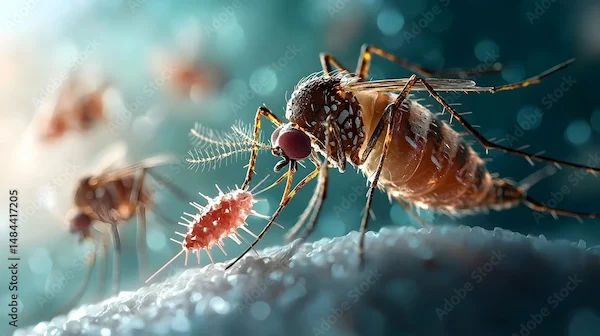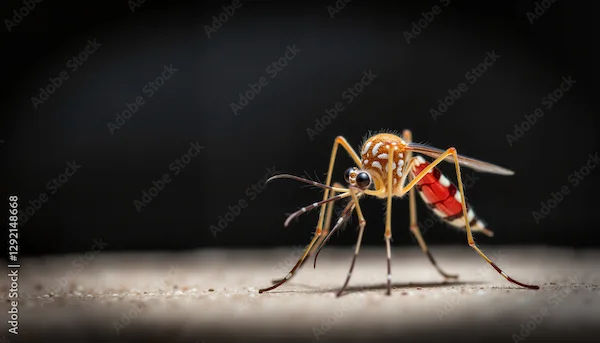Symptoms of Dengue Fever Explained
Dengue fever is a viral illness spread by mosquitoes, primarily the Aedes aegypti mosquito. It is common in tropical and subtropical regions, including India, and can range from mild to severe. Recognising the symptoms early can help in timely treatment and recovery.

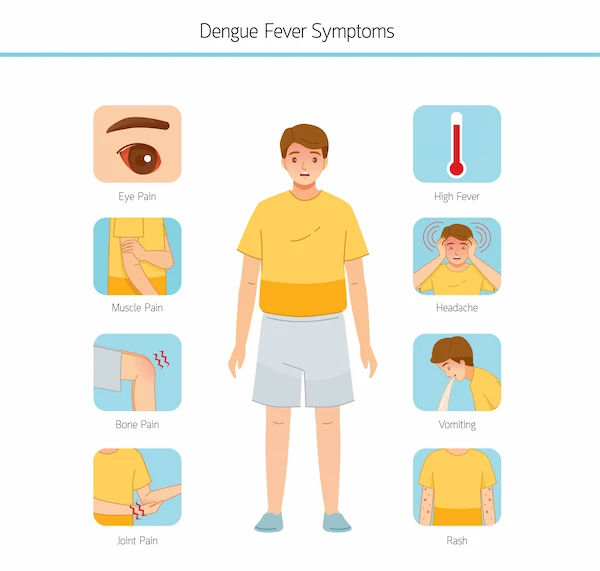
Symptoms of Dengue Fever Explained
Dengue fever is a viral illness spread by mosquitoes, primarily the Aedes aegypti mosquito. It is common in tropical and subtropical regions, including India, and can range from mild to severe. Recognising the symptoms early can help in timely treatment and recovery.
Common Symptoms of Dengue Fever
Dengue symptoms usually appear 4 to 10 days after being bitten by an infected mosquito. The most common signs include:
1. High Fever (Sudden Onset)
- One of the first signs is a sudden high fever (104°F or 40°C).
- The fever may last for 2 to 7 days.
2. Severe Headache and Eye Pain
- Intense headache, often behind the eyes.
- Pain worsens with eye movement.
3. Muscle and Joint Pain
- Severe muscle, bone, and joint pain—often called "breakbone fever."
- Pain can make daily activities difficult.
4. Skin Rash
- A red, patchy rash may appear 2 to 5 days after fever starts.
- Sometimes, small red spots (petechiae) due to bleeding under the skin.
5. Nausea, Vomiting, and Loss of Appetite
- Feeling extremely tired and weak.
- Persistent nausea or vomiting.
6. Mild Bleeding (In Some Cases)
- Nosebleeds, bleeding gums, or easy bruising.
- In severe cases, internal bleeding may occur.
Warning Signs of Severe Dengue
In some cases, dengue can become life-threatening. Seek immediate medical help if you notice:
- Severe stomach pain
- Persistent vomiting (unable to keep fluids down)
- Bleeding from nose or gums
- Blood in vomit or stool
- Rapid breathing or fatigue
- Cold, clammy skin (sign of shock)
What Causes Dengue Fever?
Dengue is caused by the dengue virus (DENV), transmitted through the bite of an infected Aedes mosquito. These mosquitoes breed in stagnant water (like buckets, flower pots, or discarded tires).
Consult Top Specialists
How Dengue Affects Your Health
Most people recover within 1 to 2 weeks, but severe dengue can lead to:
- Dehydration (due to high fever and vomiting)
- Low platelet count (increasing bleeding risk)
- Organ damage (in extreme cases)
Tips for Managing Dengue Fever at Home
If diagnosed with mild dengue, follow these steps:
1. Stay Hydrated
- Drink plenty of fluids (water, coconut water, ORS, or herbal teas).
Avoid caffeine and alcohol.
2. Rest Well
- Avoid physical strain; rest helps recovery.
3. Manage Fever and Pain
- Use paracetamol (acetaminophen) for fever and pain.
- Avoid aspirin or ibuprofen (they increase bleeding risk).
4. Eat Nutritious Food
- Include papaya leaf juice, kiwi, pomegranate, and protein-rich foods to help boost platelets.
- Avoid oily or spicy foods.
5. Prevent Mosquito Bites
- Use mosquito nets and repellents.
- Wear full-sleeved clothing.
When to See a Doctor?
If symptoms worsen or warning signs appear, seek medical help immediately. Early treatment can prevent complications. If you suspect dengue, a blood test (NS1 antigen, IgM/IgG antibody, or platelet count) can confirm it.
Conclusion
Dengue fever can be mild or severe, but early detection and care make a big difference. Stay alert for symptoms, stay hydrated, and avoid mosquito bites. If in doubt, consult a doctor promptly.
Consult Top Specialists
Consult Top Specialists

Dr. Anshul Maheshwari
General Practitioner
5 Years • MBBS
Lucknow
Apollo 24|7 Clinic - Uttar Pradesh, Lucknow

Dr. Mohammed Huzef Ul Arifeen
General Practitioner
3 Years • MBBS
Hyderabad
Apollo 24|7 Clinic - Telangana, Hyderabad

Dr. Rohinipriyanka Reddy
General Practitioner
9 Years • MBBS
Hyderabad
Apollo 24|7 Clinic, Hyderabad

Dr. Praveen Kumar Mukka
General Physician/ Internal Medicine Specialist
21 Years • MBBS, MD General Medicine
Hyderabad
Apollo 24|7 Clinic - Telangana, Hyderabad

Dr. Shesham Srinidhi
General Practitioner
5 Years • MD(physician)
Hyderabad
Apollo 24|7 Clinic, Hyderabad
(100+ Patients)
